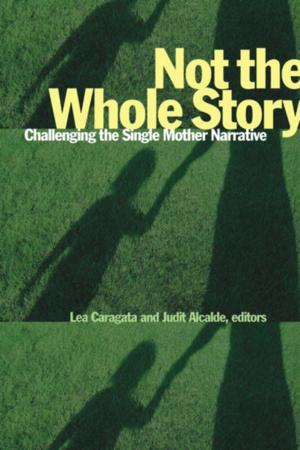Fostering Nation?
Canada Confronts Its History of Childhood Disadvantage
Nonfiction, Social & Cultural Studies, Political Science, Politics, Social Services & Welfare, Family & Relationships, Adoption, Social Science| Author: | Veronica Strong-Boag | ISBN: | 9781554587988 |
| Publisher: | Wilfrid Laurier University Press | Publication: | September 28, 2011 |
| Imprint: | Wilfrid Laurier University Press | Language: | English |
| Author: | Veronica Strong-Boag |
| ISBN: | 9781554587988 |
| Publisher: | Wilfrid Laurier University Press |
| Publication: | September 28, 2011 |
| Imprint: | Wilfrid Laurier University Press |
| Language: | English |
Fostering Nation? Canada Confronts Its History of Childhood Disadvantage explores the missteps and the promise of a century and more of child protection efforts by Canadians and their governments. It is the first volume to offer a comprehensive history of what life has meant for North America’s most disadvantaged Aboriginal and newcomer girls and boys.
Gender, class, race, and (dis)ability are always important factors that bear on youngsters’ access to resources. State fostering initiatives occur as part of a broad continuum of arrangements, from social assistance for original families to kin care and institutions. Birth and foster parents of disadvantaged youngsters are rarely in full control. Children most distant from the mainstream ideals of their day suffer, and that suffering is likely to continue into their own experience of parenthood. That trajectory is never inevitable, however. Both resilience and resistance have shaped Canadians’ engagement with foster children in a society dominated by capitalist, colonial, and patriarchal power.
Fostering Nation? breaks much new ground for those interested in social welfare, history, and the family. It offers the first comprehensive perspective on Canada’s provision for marginalized youngsters from the nineteenth to the twenty-first century. Its examination of kin care, institutions, state policies, birth parents, foster parents, and foster youngsters provides ample reminder that children’s welfare cannot be divorced from that of their parents and communities, and reinforces what it means when women bear disproportionate responsibility for caregiving.
Fostering Nation? Canada Confronts Its History of Childhood Disadvantage explores the missteps and the promise of a century and more of child protection efforts by Canadians and their governments. It is the first volume to offer a comprehensive history of what life has meant for North America’s most disadvantaged Aboriginal and newcomer girls and boys.
Gender, class, race, and (dis)ability are always important factors that bear on youngsters’ access to resources. State fostering initiatives occur as part of a broad continuum of arrangements, from social assistance for original families to kin care and institutions. Birth and foster parents of disadvantaged youngsters are rarely in full control. Children most distant from the mainstream ideals of their day suffer, and that suffering is likely to continue into their own experience of parenthood. That trajectory is never inevitable, however. Both resilience and resistance have shaped Canadians’ engagement with foster children in a society dominated by capitalist, colonial, and patriarchal power.
Fostering Nation? breaks much new ground for those interested in social welfare, history, and the family. It offers the first comprehensive perspective on Canada’s provision for marginalized youngsters from the nineteenth to the twenty-first century. Its examination of kin care, institutions, state policies, birth parents, foster parents, and foster youngsters provides ample reminder that children’s welfare cannot be divorced from that of their parents and communities, and reinforces what it means when women bear disproportionate responsibility for caregiving.















